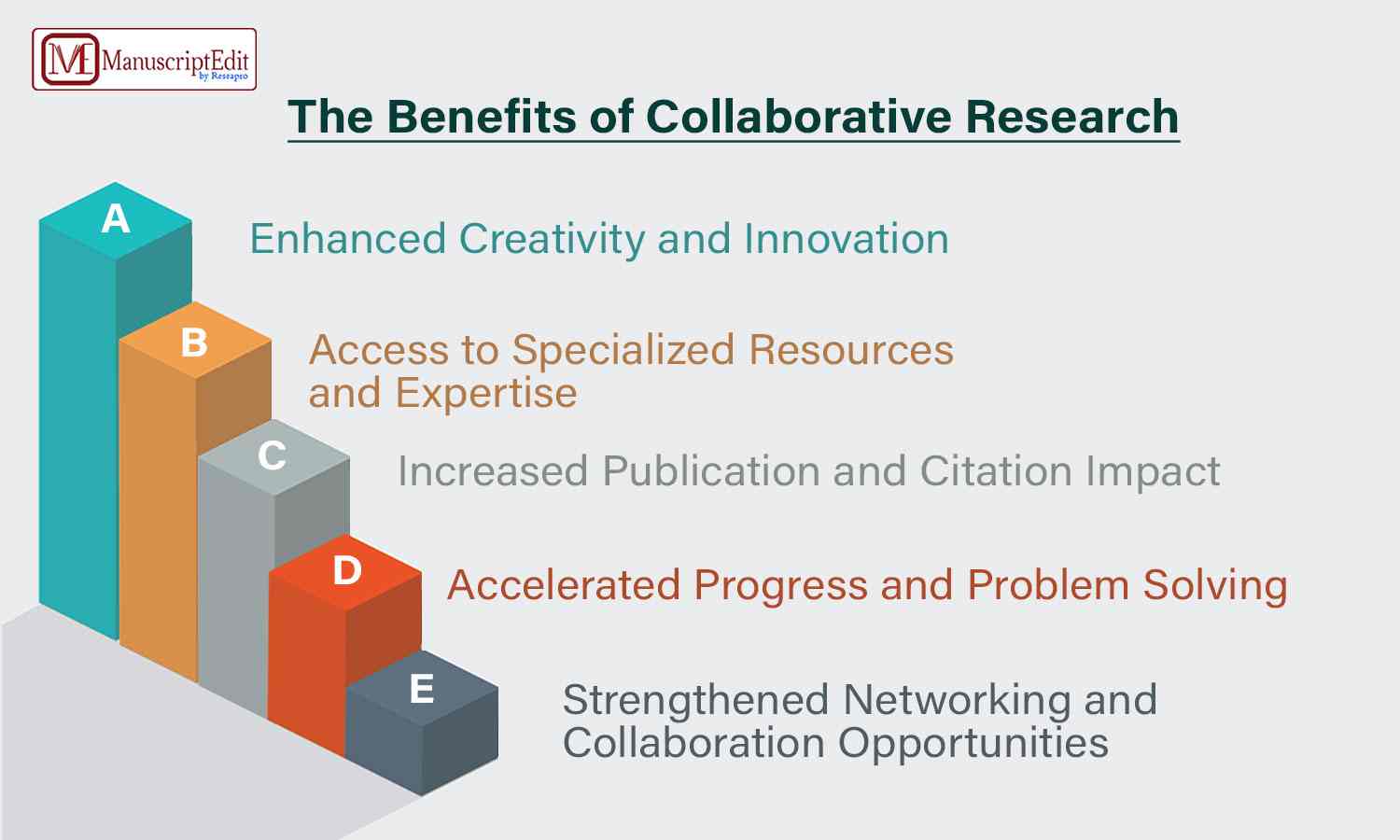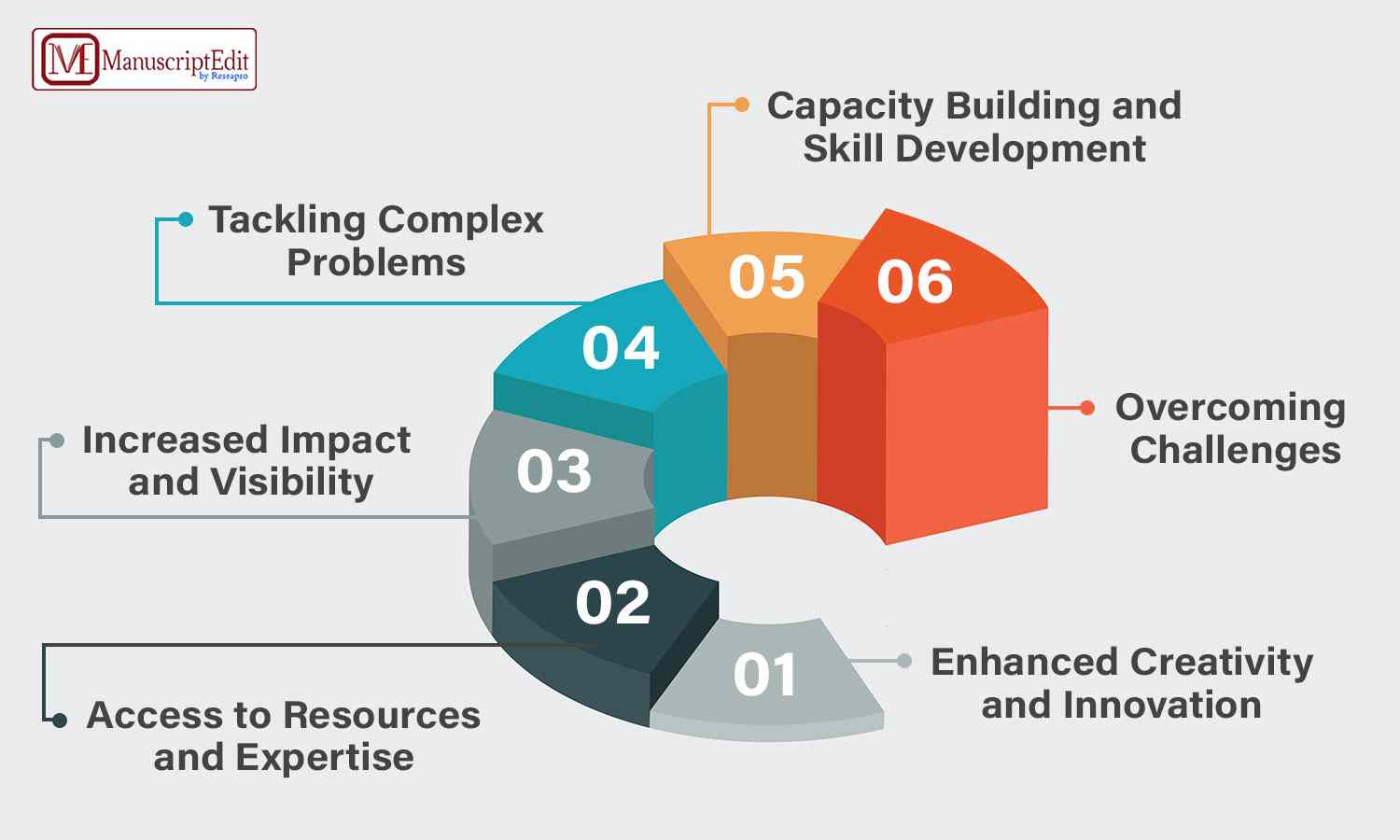|
Getting your Trinity Audio player ready...
|

Multidisciplinary research collaboration refers to merging multiple fields and expertise to address complicated research topics. Cooperation is crucial in scientific study because it stimulates originality, inventiveness, and thorough comprehension.
Effective knowledge integration and innovation can be hampered by collaborative research obstacles, which include methodological disagreements, competing priorities, communication gaps, and power dynamics. Addressing knowledge imbalance through research collaboration is imperative.

How Does Collaboration Help Research?
Collaborating on multidisciplinary research has many advantages, such as pooling knowledge and experience to solve complicated issues, getting access to fresh capital and resources, fostering creativity and innovation, and improving the calibre and significance of research. Collaborations generate more thorough and reliable research findings by bringing together a variety of viewpoints and specialities, which spurs creativity and discoveries.
Research conducted in cooperation is more likely to be disseminated, published, and used in practical contexts, influencing public opinion, practice, and policy. The potential for interdisciplinary research collaboration to advance knowledge and tackle societal issues by producing significant contributions and ground-breaking discoveries is immense, inspiring us all to push the boundaries of our respective fields.
Strategies for Effective Collaboration
Clear communication channels, roles and responsibilities, knowledge sharing and cross-training, adaptable leadership and decision-making, and handling conflicts and disagreements are all necessary for effective collaboration.
These tactics help researchers combine their knowledge and produce ground-breaking discoveries by fostering a cohesive and effective team atmosphere.
What Are the Challenges in Research Collaboration?
Multidisciplinary research collaboration encounters several difficulties, such as linguistic and communication hurdles, competing agendas and goals, power dynamics and hierarchies, conflicts and discrepancies in methodology, and differences in culture and discipline. These difficulties can impede productive cooperation and knowledge integration, causing miscommunications, disputes, and power struggles.
Cultural and disciplinary differences and disparate research methodologies, approaches, and epistemologies can impact work styles, communication, and conflict resolution. Acknowledging and surmounting these obstacles to guarantee fruitful and inventive research is vital.
 How Can a Research Collaboration Be Enhanced?
How Can a Research Collaboration Be Enhanced?
Successful multidisciplinary research teams thrive on inclusivity, open communication, and trust. By cultivating transparent communication and attentive listening, we enable every member to provide their distinct viewpoints and areas of expertise.
Establishing rapport and trust among others is not just important, it’s integral to our collective success. By embracing variety and inclusivity, everyone feels heard and important, fostering a culture of respect and empathy that is the bedrock of successful collaboration.
Acknowledging accomplishments and drawing lessons from mistakes encourages a growth attitude and ongoing progress. Even the most challenging research problems can be solved with a pleasant and encouraging team atmosphere.
Conclusion
To summarise, interdisciplinary research collaboration is essential for tackling challenging research issues and fostering creativity. Even though working together can sometimes be difficult, tactics like clear communication, shared objectives, and cultural competency can help make it easier.
References
- https://www.linkedin.com/pulse/synergies-unveiled-navigating-complex-challenges-through-interdisciplinary-myotf?trk=article-ssr-frontend-pulse_more-articles_related-content-card
- https://www.linkedin.com/pulse/navigating-collaborative-research-challenges-strategies-xdjhc
- https://www.timeshighereducation.com/campus/benefits-and-challenges-interdisciplinary-multidisciplinary-and-convergence-research



